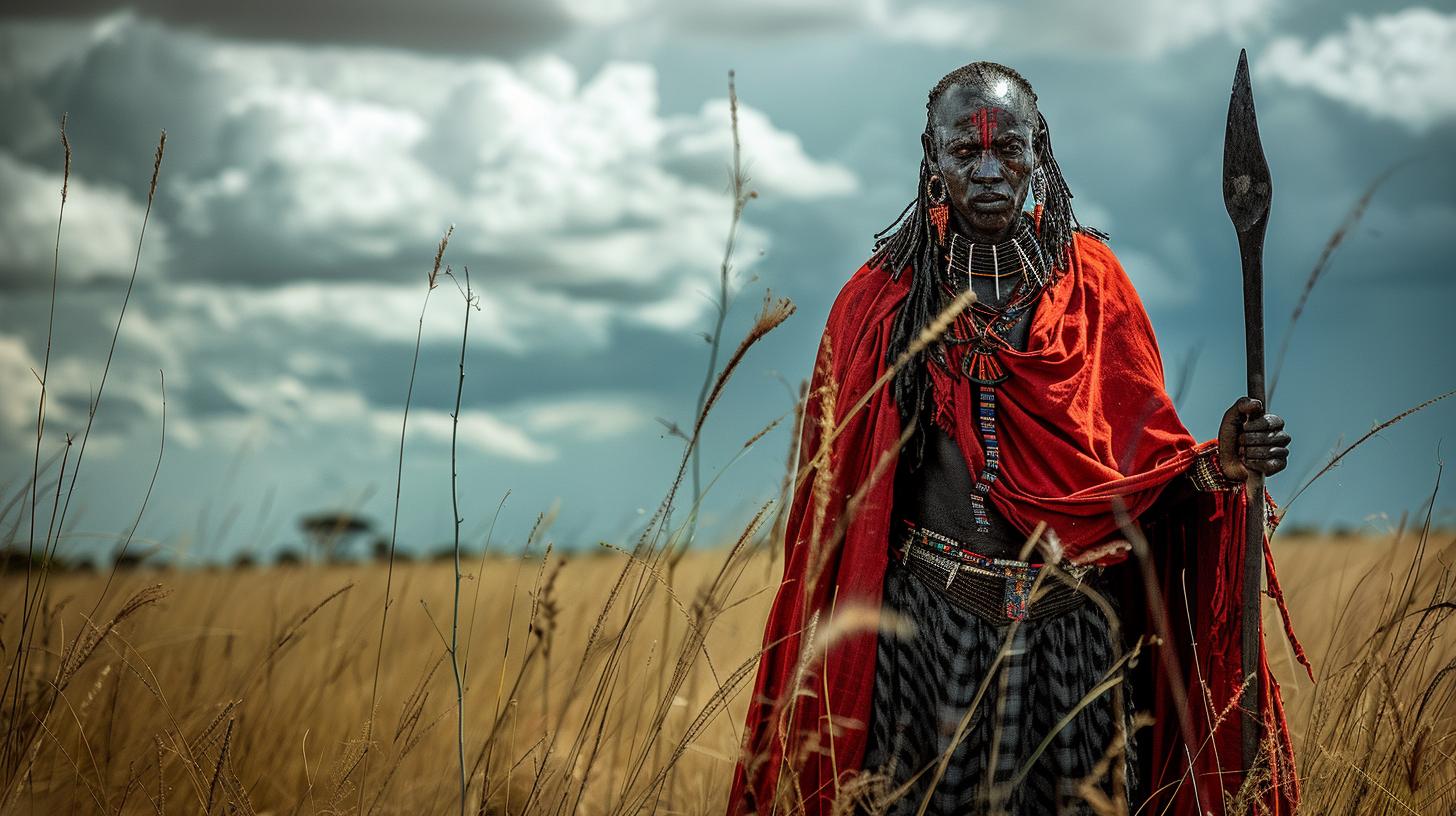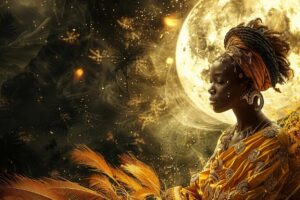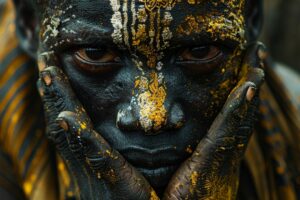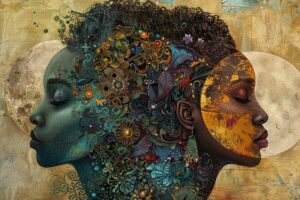Engai Masai God: The Supreme Creator in Maasai Mythology
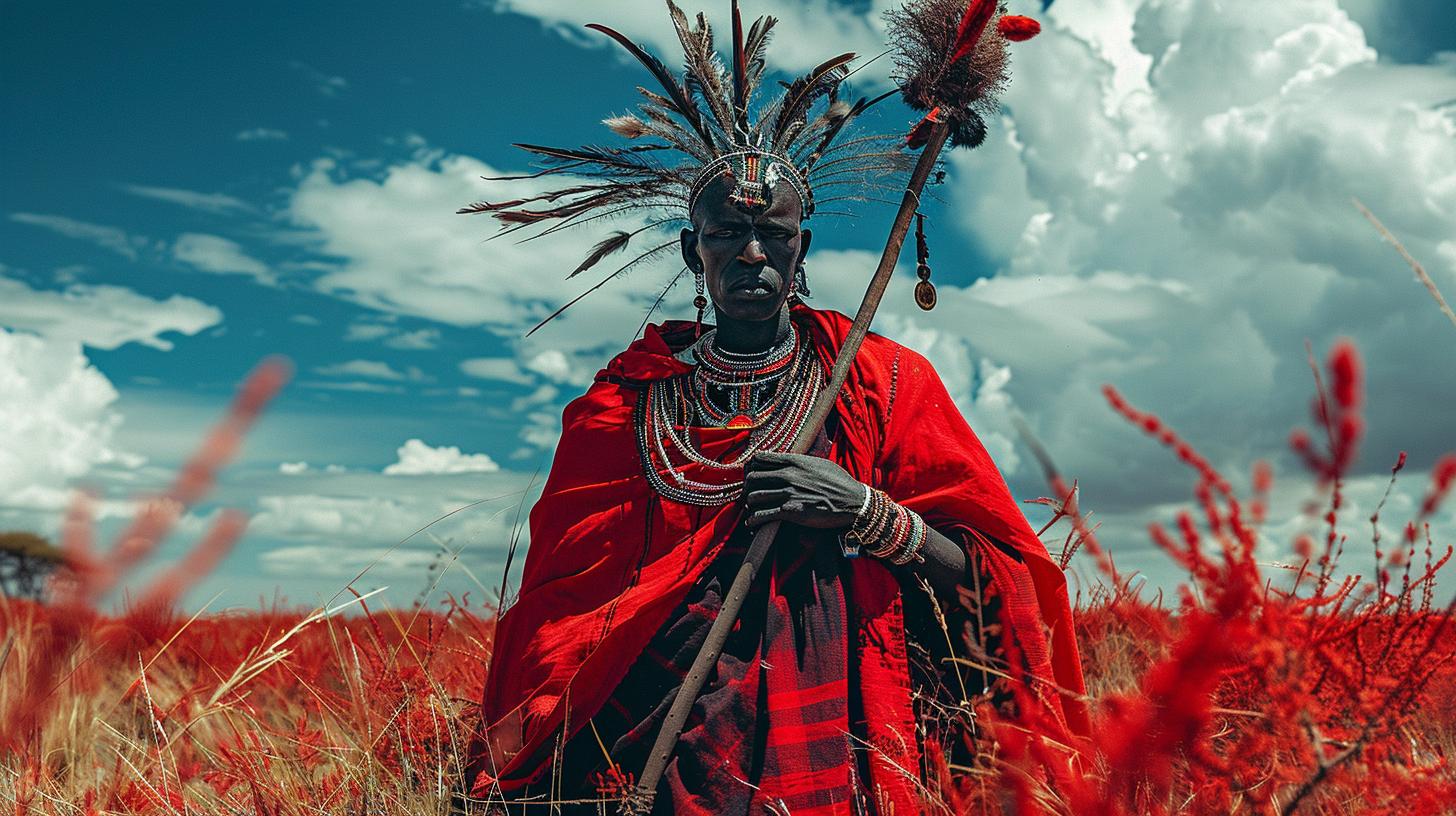
Engai, the Maasai God, is revered as the supreme creator in Maasai mythology. Engai’s influence extends to nature, rituals, and spiritual teachings. The Laibon, Maasai religious leaders, play a crucial role as intermediaries.
Maasai culture emphasizes respect for nature and wildlife, guided by Engai’s principles.
This succinct introduction introduces the central themes of Engai, the Maasai God, and its significance in Maasai culture and beliefs.
Engai Masai God: The Supreme Creator
Engai, the central figure in Maasai mythology, is revered as the supreme creator with both male and female aspects. His powers encompass creation and sustenance of the universe.
Description and Powers of Engai
Engai is believed to hold the principles of creation and is associated with natural phenomena such as storms.
Role of Engai in Maasai Mythology
Within Maasai belief, Engai serves as the creator of all things and is linked to events in nature and spirituality.
Worship and Rituals Dedicated to Engai
- Maasai rituals and ceremonies are conducted to seek favor from Engai for prosperity, fertility, and protection.
- Engai’s influence is evident in natural cycles, community well-being, and divine justice.
The Laibon: Maasai Religious Leaders
The Laibon, revered by the Maasai community, hold significant roles in preserving spiritual traditions.
Responsibilities and Duties of the Laibon
The Laibon’s responsibilities include conducting ceremonies, interpreting divine messages, and ensuring spiritual well-being.
- Conducting ceremonies
- Interpreting divine messages
- Ensuring spiritual well-being
Importance of the Laibon in Maasai Society
Laibon play a crucial role in upholding cultural practices, fostering community unity, and providing guidance in times of need.
- Upholding cultural practices
- Fostering community unity
- Providing guidance in times of need
Engai’s Influence on Nature and Community
Engai’s influence extends to the natural world and the Maasai community, shaping beliefs, traditions, and practices.
Connection Between Engai and Natural Phenomena
The Maasai perceive Engai as closely connected to natural phenomena, such as rain, seasons, and the health of their livestock. Through rituals and ceremonies, they seek to garner Engai’s favor for prosperity, fertility, and protection.
Engai’s role in Maasai culture is profound, guiding their respect for nature and wildlife as divine gifts. Maasai traditions and practices dedicated to Engai promote environmental harmony and the preservation of their spiritual connection with the natural world.
Oral Tradition and Spiritual Teachings
The transmission of stories and teachings about Engai plays a crucial role in preserving Maasai cultural heritage. Through oral history, the wisdom and spiritual connection to the divine are passed down from generation to generation.
The oral tradition serves as a vehicle for imparting moral lessons, spiritual values, and the significance of Engai in Maasai society.
Transmission of Stories and Teachings About Engai
Within Maasai communities, the elders are responsible for recounting the myths, legends, and teachings related to Engai. These narratives contain valuable insights into the origin of the universe, the role of Engai in creation, and the moral principles that guide human behavior.
By preserving and sharing these stories orally, the Maasai ensure the continuity of their spiritual beliefs and cultural identity.
Spiritual Connection Through Oral History
Through the recitation of sacred stories and rituals, the Maasai establish a spiritual connection to Engai and their ancestors. Oral history acts as a medium through which the community maintains a living relationship with the divine, seeking guidance, protection, and wisdom.
The oral tradition serves as a repository of spiritual knowledge, shaping the Maasai worldview and fostering a sense of unity and continuity.
Maasai Respect for Nature and Wildlife
The Maasai people hold a deep reverence for the natural world and all living creatures, viewing them as sacred gifts from Engai. This profound respect is reflected in their cultural practices and traditions.
Cultural Practices Promoting Environmental Harmony
- Maasai communities engage in eco-friendly practices that prioritize sustainability and conservation.
- They have a strong connection to the land, using it responsibly and in harmony with nature.
- Traditional Maasai herding practices are designed to ensure the well-being of both livestock and the environment.
Engai’s Role in Fostering Respect for Nature
Engai, as the supreme creator, instills in the Maasai people the belief that nature should be cherished and protected.
Application of Maasai Values in Modern Contexts
In today’s rapidly changing world, the traditional values upheld by the Maasai community offer a unique perspective on navigating modern challenges. The teachings of Engai, the Maasai God, emphasize principles of harmony, respect for nature, and community well-being.
By adapting these age-old values to contemporary issues, the Maasai people can draw upon the wisdom of their spiritual beliefs to address societal changes, environmental concerns, and economic development. Engai’s guidance serves as a moral compass, guiding the Maasai towards sustainable practices and holistic approaches in the face of modern dilemmas.
Engai’s Relevance in Addressing Current Issues
As the Maasai strive to maintain their cultural identity and preserve their ancestral lands, the relevance of Engai’s teachings becomes increasingly significant. In the midst of land disputes, conservation efforts, and socio-economic pressures, the Maasai look to Engai for guidance on upholding their values.
Engai’s influence extends beyond spiritual beliefs, shaping the Maasai’s responses to contemporary challenges such as land rights, education access, and community empowerment. By grounding their actions in the guidance of Engai, the Maasai navigate the complexities of the modern world while staying true to their cultural heritage.
.

